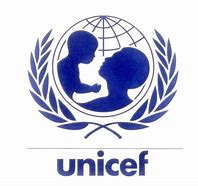The United Nations Children’s Fund (UNICEF) said on Wednesday that learning crisis was seriously stalling development in the country.
Mrs Yetunde Oluwatosin, UNICEF Education Specialist, who said this at a media workshop on foundational literacy and numeracy in Benin, Edo, called for foundational learning skills to correct the trend.
The News Agency of (Nigeria) reports that the theme of the workshop is “Turning the tide on Nigeria’s Learning Crisis, A South-West media dialogue on foundational literacy and numeracy”.
The workshop was organised by UNICEF in collaboration with the Edo State SUBEB, Edo State Ministry of Education and the National Orientation Agency (NOA), Lagos State Directorate
Oluwatosin said that 73 per cent of 10 years old children in the country were still having the challenge of reading or comprehending simple text, while nine out of 10 kids in Sub-Saharan Africa were trapped by learning poverty.
She said that while this trend exited, only 63 per cent of five years old categorised as the poorest children living in the rural areas and in the north, participated in an organised learning.
Oluwatosin said that this had led to late primary school entry and poor learning outcomes.
The UNICEEF education specialist noted that three out of four children in Nigeria could not read with meaning or solve simple mathematical problems.
According to her, 73 per cent of the Nigerian youths are literate, while only seven per cent have ICT skills needed for working and learning in the digital economy.
Oluwatosin also said that limited infrastructure, insufficient supply of teachers, limited learning data, especially on proficiency level were some of the reasons for the negative trend.
She said that UNICEF was improving the quality of teaching and learning materials, and had provided more than 1.8 million children with learning materials between 2018 and 2022.
Oluwatosin said that UNICEF was planning to reach another 4.8 million by 2027, particularly in the north.
She noted that foundational learning skills was needed to stop the learning crisis trend to improve learning outcomes in primary schools in the country.
In her remarks, Ms Blessing Ejiofor, UNICEF Communication Officer, appealed to the media to use their influence to sway policies and decisions aimed at improving leaning outcomes for children in Nigeria.
Ejiofor said she was looking forward to media reports that would aid the understanding and influence positive actions from decision makers, to leverage both financial and non-financial resources, to reduce learning poverty.
Speaking, Dr Joan Oviawe, Edo State Commissioner for Education, commended UNICEF for their efforts aimed at reducing learning poverty in the state.
Oviawe, who noted that the state has been doing a lot to compliment UNICEF efforts, said that the state had embarked on mass literacy initiative, especially “out of school population”.
“We acknowledge all that UNICEF have been doing. On our part, we engage artisans under the mass literacy initiative and learning by correspondence, to teach them on how to read and write.
“We also introduced technology into our learning agenda and also distributed learning tablets for students and teachers to encourage them and ensure that the learning activities are well structured and centralised.
“The special students are also captured in this initiative and the idea is to ensure total inclusiveness in our education agenda,” She added.
NAN reports that more than 70 journalists from the South-West zone are taking part in the two-day workshop. (NAN)



